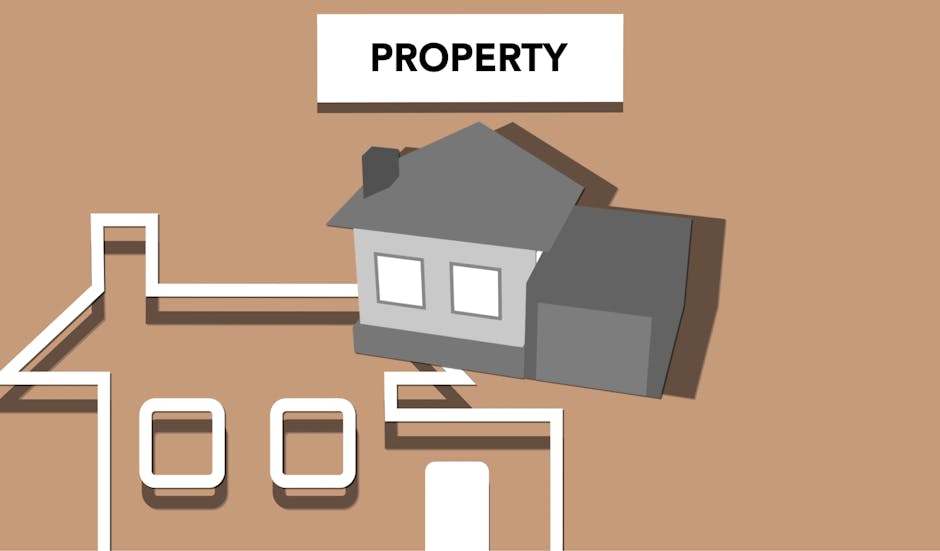How to become a certified property manager in Florida is a common question for those interested in managing residential or commercial properties in the Sunshine State. Here’s a quick overview:
- Meet Age and Educational Requirements: Be at least 18 years old and have a high school diploma or GED.
- Complete Pre-Licensing Education: Finish a state-approved 63-hour course on real estate principles and laws.
- Pass the State Exam: Score at least 75% on the Florida Real Estate Sales Associate exam.
- Undergo a Background Check: Submit electronic fingerprints and pass a criminal history review.
- Engage in Post-Licensing Education: Complete 45 hours of post-licensing courses within your first renewal period.
Property management in Florida is a critical field that ensures rental properties are well-maintained and profitable. Whether overseeing single-family homes, apartments, or commercial spaces, property managers act as the bridge between landlords and tenants, ensuring both parties are satisfied. Effective management not only upholds property standards but also aligns with local laws and regulations.

Infographic Description: A colorful step-by-step infographic showing the process to become a certified property manager in Florida. The steps are visually separated with icons representing each stage, including age requirement, educational qualifications, pre-licensing course, state exam, background check, and post-licensing education.
Understanding Property Management in Florida
Managing property in Florida involves a mix of real estate activities and ensuring rental properties run smoothly. This means meeting both tenant needs and property ownership obligations.
Real Estate Activities
Property managers handle a variety of tasks that fall under real estate activities. This includes:
- Leasing and Renting: Finding and vetting tenants, signing lease agreements, and collecting rent.
- Maintenance and Repairs: Ensuring properties are well-maintained and any issues are promptly fixed.
- Compliance: Following local laws and regulations, such as handling security deposits correctly and adhering to eviction protocols.
Rental Properties
In Florida, rental properties can range from single-family homes to large apartment complexes. Property managers must be adept at handling different types of properties and the unique challenges each presents. They often act as the intermediary between the landlord and tenants, dealing with everything from lease renewals to maintenance requests.
Tenant Needs
A successful property manager knows how to keep tenants happy. This involves:
- Prompt Communication: Responding quickly to tenant inquiries and issues.
- Fair Treatment: Ensuring all tenants are treated equally and fairly.
- Amenities and Services: Providing necessary services and maintaining amenities to keep the property attractive.
Property Ownership
For property owners, especially those with multiple properties, a property manager is essential. They help ensure that properties are profitable and well-maintained. This includes:
- Financial Management: Tracking income and expenses, ensuring rent is collected on time, and managing budgets.
- Legal Compliance: Keeping up with changes in property laws and ensuring the property complies with all regulations.
Landlord Insurance
Before starting any rental agreement, it’s wise to have landlord insurance in Florida. This insurance covers damages to the property, protecting the owner from potential financial losses. It’s an important step in safeguarding the investment and ensuring peace of mind.

By understanding these key aspects, property managers in Florida can ensure that both landlords and tenants are satisfied, properties are well-maintained, and legal requirements are met. This forms the foundation for a successful property management career in the Sunshine State.
Next, we’ll dive into the Licensing Requirements for Property Managers in Florida.
Licensing Requirements for Property Managers in Florida
To become a certified property manager in Florida, you need to follow specific steps to obtain your real estate license. This process ensures that all property managers have the necessary knowledge and skills to manage properties effectively and ethically. Here’s a detailed look at the requirements:
Pre-Licensing Education
Your journey starts with a 63-hour pre-licensing course. This course must be approved by the Florida Real Estate Commission (FREC). The course covers essential topics like real estate principles and Florida laws.
Completing this course is crucial. It lays the groundwork for understanding the complexities of property management and prepares you for the next step: the state licensing exam.
State Licensing Exam
After finishing the pre-licensing course, you’ll need to pass the Florida Real Estate Sales Associate Exam. This exam tests your knowledge of real estate principles and Florida laws.
To pass, you need a score of 75 or higher out of 100 points. If you don’t pass on your first try, don’t worry—you can retake the exam. Thorough preparation is key to success.
Background Check and Fingerprints
Before you can get your license, you must undergo a background check and submit your fingerprints. This step ensures that all licensed property managers meet Florida’s ethical standards.
Post-Licensing Education and Continuing Education
Once you pass the state exam and obtain your license, there’s more to do. Within your first year, you must complete a 45-hour post-licensing course. This course builds on what you learned in the pre-licensing course and helps you transition into your new role.
To keep your license active, you’ll need to complete 14 hours of continuing education every two years. This ongoing education ensures that you stay up-to-date with changes in laws and best practices in property management.
By following these steps, you can become a certified property manager in Florida. Next, we’ll explore the different paths you can take in your property management career.
How to Become a Certified Property Manager in Florida
Becoming a certified property manager in Florida involves several steps and certifications. Here, we’ll focus on two prominent certifications: the Certified Apartment Manager (CAM) and the Certified Property Manager (CPM).
Certified Apartment Manager (CAM)
The CAM certification is ideal if you want to specialize in apartment management. Here’s how to get started:
- Experience: You need at least 12 months of experience in apartment management. This hands-on experience is crucial for understanding the day-to-day operations of managing apartment properties.
- Coursework: Complete a 40-hour coursework program. This program covers essential topics like marketing, budgeting, and maintenance.
- CAM Exam: Pass the CAM exam. This test evaluates your knowledge and skills in apartment management.
Certified Property Manager (CPM)
The CPM certification is more advanced and covers a broader range of property management skills. Here’s what you need:
- Experience: You need 36 months of experience in property management. This experience should be comprehensive, covering various types of properties and management tasks.
- Education: Complete 8 certification courses. These courses cover topics like ethics, asset analysis, and financial planning.
- CPM Capstone: Successfully complete the CPM Capstone. This is a final assessment that tests your overall knowledge and skills.
- Ethics and Asset Analysis: You must demonstrate a strong understanding of ethics and asset analysis. These are critical areas that ensure you can manage properties responsibly and profitably.
- Real Estate Broker License: In Florida, you also need a real estate broker license. This requires at least 24 months of real estate experience, 60 post-licensing hours, and passing the state broker exam. This license allows you to manage properties independently and handle commission-based work.
By following these steps, you can become a certified property manager in Florida. Next, we’ll discuss the essential skills and responsibilities you need to succeed in this role.
Skills and Responsibilities of a Property Manager
Being a property manager in Florida is more than just holding a license. It’s about having the right skills and handling a variety of responsibilities to keep properties running smoothly. Here’s what you need to know:
Communication
Excellent communication is key. You’ll be the go-between for property owners, tenants, and maintenance staff. Clear and prompt communication helps solve issues quickly and keeps everyone happy.
Organization
Property managers juggle a lot of tasks—lease agreements, maintenance schedules, tenant screening, and financial tracking. Being organized is crucial. Use tools like calendars, task lists, and property management software to keep everything in order.
Tenant Screening
Choosing the right tenants is vital. This means conducting background checks, credit checks, and reference verifications. A thorough screening process helps ensure reliable tenants and fewer problems down the line.
Rent Collection
Collecting rent on time is one of your main duties. You’ll need to manage payment issues and adjust rents based on market trends and lease agreements. Keeping a consistent cash flow is essential for property profitability.
Lease Renewals
When leases are up for renewal, you’ll need to negotiate terms, update contracts, and work to maintain high occupancy rates. Happy tenants are more likely to renew, so good tenant relations are important.
Reporting
Property owners rely on you for detailed reports on property performance. This includes financial reports, maintenance updates, and overall property status. Accurate reporting helps owners make informed decisions.
Marketing
Effective marketing is essential to attract new tenants. This means understanding market trends, creating appealing property listings, and using various platforms for advertisements. Good marketing keeps vacancies low and profits high.
By mastering these skills and responsibilities, you’ll ensure that properties are well-managed, tenants are satisfied, and owners are happy with their investments. Next, we’ll dive into the financial aspects of property management.
Financial Aspects of Property Management
Management Fees
Property managers in Florida typically earn their income through management fees. This fee is usually a percentage of the monthly rent collected from tenants, ranging from 8% to 12%. For example, if the monthly rent is $1,000, the property manager might earn $80 to $120 per month. Some agreements might opt for a fixed monthly fee instead, providing stability for both the property owner and the manager.
Rent Collection
Rent collection is one of the core responsibilities of a property manager. Ensuring that rent is paid on time is crucial for maintaining steady cash flow. Property managers often handle late payment fees and must communicate promptly with tenants about overdue payments. Effective rent collection practices contribute to the financial health of the property.
Security Deposits
Handling security deposits requires strict adherence to Florida law. These deposits, usually equal to one month’s rent, must be kept in a separate account. They are used to cover any damages caused by the tenant. Proper management of security deposits involves clear documentation and timely return of funds, minus any deductions for repairs.
Accounting Practices
Good accounting practices are essential in property management. Property managers must maintain meticulous records of all financial transactions. This includes tracking rent payments, expenses, and security deposits. Transparent accounting helps build trust with property owners and tenants, reducing disputes and ensuring everyone has a clear financial picture.
Here’s a quick summary of the key financial aspects:
| Aspect | Description |
|---|---|
| Management Fees | Typically 8% to 12% of monthly rent or a fixed monthly fee. |
| Rent Collection | Ensuring timely rent payments and handling late fees. |
| Security Deposits | Held in a separate account, used for damages, and must follow Florida law. |
| Accounting | Detailed record-keeping of all financial transactions for transparency. |
Understanding these financial aspects is crucial for the smooth operation and profitability of rental properties. Next, let’s address some frequently asked questions about becoming a certified property manager in Florida.
Frequently Asked Questions about Becoming a Certified Property Manager in Florida
What credentials do you need to be a property manager in Florida?
In Florida, the main credential you need to manage properties is a real estate license. This can be either a Real Estate Sales Associate license or a Real Estate Broker license.
To get started, you need to:
- Be at least 18 years old and hold a high school diploma or GED.
- Complete a 63-hour pre-licensing course approved by the Florida Real Estate Commission (FREC).
- Pass the state licensing exam.
- Undergo a background check and submit fingerprints.
Once you have your real estate license, you can gain additional certifications to boost your credentials, such as the Certified Apartment Manager (CAM) or the Certified Property Manager (CPM).
How long does it take to become a property manager in Florida?
The timeline to become a property manager in Florida can vary depending on your pace. Here’s a breakdown:
- Pre-Licensing Education: The 63-hour course can be completed in a few weeks if taken full-time, or over several months if part-time.
- State Licensing Exam: Scheduling and passing the exam can take another few weeks.
- Post-Licensing Education: After obtaining your license, you need to complete a 45-hour post-licensing course within your first renewal year.
In total, you can expect the entire process to take anywhere from 2 to 6 months.
How much does a certified property manager make in Florida?
The salary of a certified property manager in Florida can vary based on experience, location, and the type of properties managed. On average, a property manager in Florida makes around $62,650 per year.
Factors that can influence your earnings include:
- The size and type of properties managed (residential vs. commercial).
- Specific responsibilities and the scope of your role.
- Certifications and additional qualifications, such as CAM or CPM, which can improve your earning potential.
Property managers also earn management fees, typically ranging from 8% to 12% of the monthly rent collected, which can significantly impact overall income.
Next, we’ll explore the essential skills and responsibilities of a property manager.
Conclusion
At GageCo Home Services, we believe in a personalized approach to property management. With over 30 years of experience in the real estate service industry, we have a deep understanding of what it takes to manage properties effectively in Florida.
Our commitment to quality sets us apart. We focus on building strong relationships with property owners and tenants alike, ensuring that every property we manage is well-maintained and profitable. We leverage advanced technology to streamline processes and improve communication, making property management more efficient and less stressful for our clients.
Whether you’re just starting your career in property management or looking to advance to a higher level, we are here to support you every step of the way. Our team is dedicated to helping you achieve success in this dynamic industry.
For more information on our services and how we can assist you in your property management journey, visit our services page.
Thank you for choosing GageCo Home Services as your trusted partner in property management.


